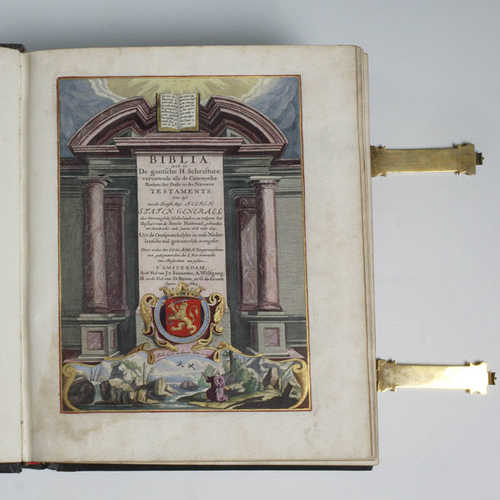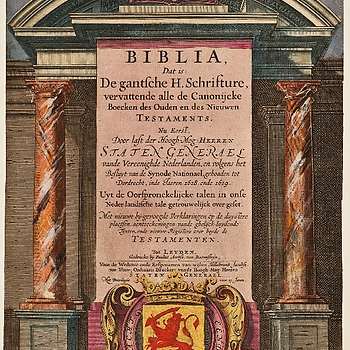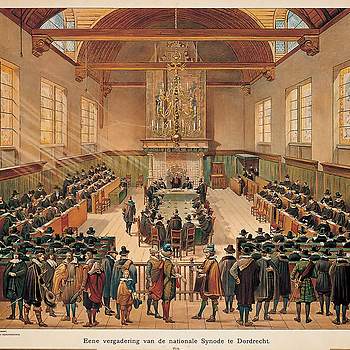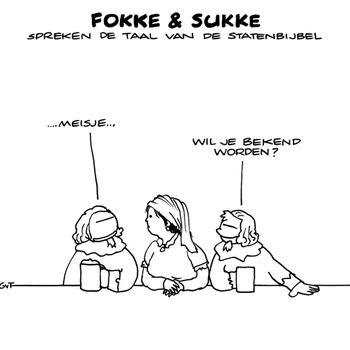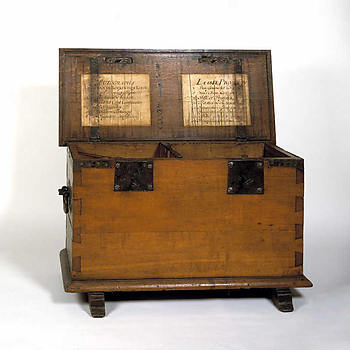Belief on the basis of the Bible
Most medieval Christians regard the rituals (recurrent, solemn acts) of the church as far more important than reading the Bible. This is not surprising, considering that in those days, few people know how to read and write. With the rise of the middle classes, literacy booms. A fertile soil develops for the idea of reformists such as Martin Luther (1483-1546) that belief on the basis of the Bible holds more importance than the rituals. More and more of the faithful grow convinced that it is imperative to be able to read the Bible individually, and that the main task of the clergy is to explain the Bible.
As early as the Middle Ages, sections of the Bible are translated into Dutch. One such example is Jacob van Maerlant’s Rhyming Bible, dating from 1271. Around 1535, Martin Luther translates the Bible into German; for his translation, he uses Erasmus’s edition of the Greek New Testament. The sixteenth century sees several Dutch translations of Luther’s German translation.
New translation
The newly established Republic perceives a growing need for a national language and a national Bible to settle its religious differences. The Protestant Church develops a demand for a new Bible translation, patterned on the English Authorized Version: the King James Bible that was published in 1611. In 1618, an important church assembly, the Synod of Dordrecht, decides to commission a new translation of the Bible. The translation is to be funded by the States General; hence, it is commonly referred to as the States Translation. The Synod orders the translators to carefully adhere to the original Hebrew and Greek texts, and to formulate the text in universally comprehensible, clear wording.
As a result of a range of religious and political discussions, the States General does not endorse this proposal until 1626, whereupon the translators commence their work. Nine years later, the translation is completed, and in 1637 the States Translation or States Bible is ready to print. Between 1637 and 1657, as many as half a million copies are printed, to serve a Dutch population of two million.
Influence on the Dutch language
The States Translation is used and read in all seven provinces of the Republic. Throughout the ages, large groups of Protestant believers have become familiar with the language used in the States Bible. Expressions derived from the States Translation, such as “in the sweat of thy face”, “forbidden fruit”, and “thorn in the flesh” are firmly embedded in the Dutch languages. For a long time, the States Translation has been presumed to have had a major impact on the development of Standard Dutch, but according to recent academic research, this is hardly the case.
Until approximately 1950, the States Bible remains the most widely read Bible translation in the Protestant churches. To this day, some church communities continue to use this translation. In addition, a “Revised States Translation” has been introduced.

